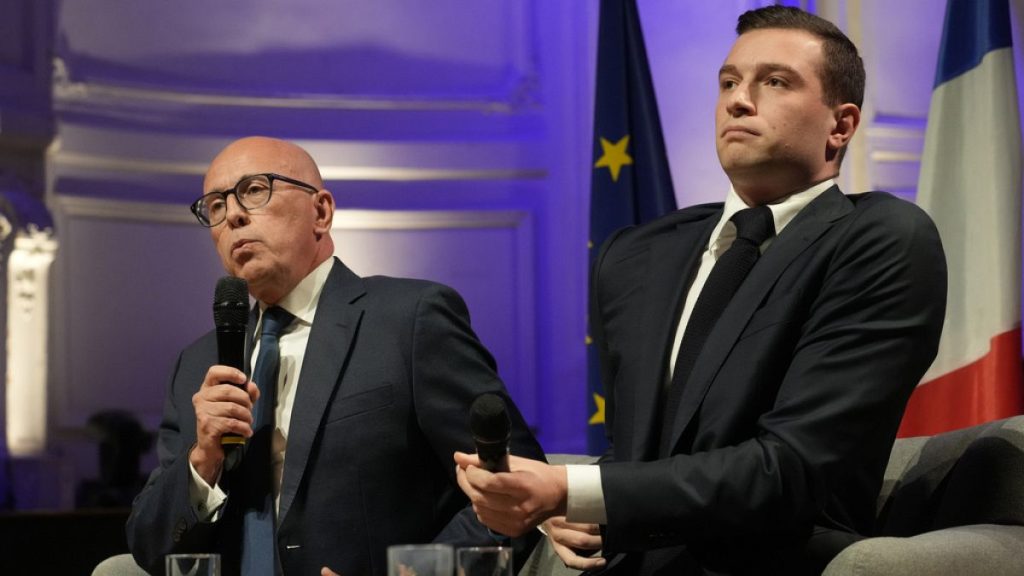French business leaders are expressing concerns about the economic policies of political parties ahead of the upcoming snap parliamentary elections. This sentiment was highlighted during a high-profile event organised by MEDEF, France’s leading employers’ federation, where prominent politicians presented their economic programs. For the first time, Éric Ciotti and Jordan Bardella appeared together at the event, aiming to reassure employers about their economic agendas. Bardella, representing the far-right National Rally (RN), emphasized stability and growth, while Ciotti – leader of centre-right conservatives Les républicains (LR), who controversially suggested his party allies with RN – pledged support for the business community. RN’s proposal to reverse pension reform has particularly unsettled many business leaders, with one company chairman describing RN’s budget plans as “completely unbalanced.” Meanwhile, the left-wing coalition, represented by Boris Vallaud, called for increased solidarity from employers.
Édouard Philippe and Bruno Le Maire, from President Emmanuel Macron’s centrist alliance, stressed a pro-business approach and warned against the economic policies of their opponents. Le Maire criticised the RN’s proposals, calling them “crazy” and stressing the need for fiscal responsibility. Amid the political uncertainty, business leaders like Charles Le Goff have adopted a cautious approach, freezing investments and pausing hiring. Employees share this apprehension, with long-time staff member Stéphane Roselli expressing concerns about the future. Another business owner, involved in the aeronautics industry, has taken out a loan to prepare for potential challenges, doubting the feasibility of the RN and left-wing promises.
The election, set for June 30 and July 7, follows Macron’s decision to dissolve the National Assembly after the RN’s strong performance in European elections. The latest polls indicate the RNs leading with 34%, followed by the left-wing Popular Front at 29%, and Macron’s Together coalition at 22%. Bardella, addressing MEDEF, promised an audit of public finances and a revised budget for 2024, including tax cuts for companies. He also called for reduced EU spending and curbing fiscal loopholes. However, Le Maire reiterated the government’s commitment to lowering the budget deficit and maintaining stability. Left-wing representatives like Eric Coquerel of France Unbowed argued that increased spending would be balanced by economic growth and higher taxes on the wealthy. Despite these assurances, many employers remain unconvinced.
Sophie de Menton, head of Mouvement Ethic, stated that none of the party’s proposals provided reassurance. Prime Minister Gabriel Attal pledged to lower power bills, adjust inheritance tax and link pensions to inflation if the Macron alliance retained power. He confirmed there would be no tax hikes under their administration. Markets have shown some stability after recent fluctuations, but investors remain wary of a high-spending RN-led government or potential legislative gridlock if no party secures an absolute majority. French blue-chip stocks have recovered slightly, but the borrowing cost gap between French and German bonds indicates ongoing caution among investors.













